Every day thousands of families are affected by alcohol addiction. Although most of us have likely seen the effects of this illness on a friend or family member, those who haven’t suffered from the disorder often don’t understand just how difficult or devastating it is for the individual themselves.
Understanding Alcohol Addiction
Learn More About Alcohol Addiction
Sometimes a person is ostracized because others believe that alcohol is something that can only be abused by a weak drinker, someone who just can’t “hold their alcohol,” someone who should know their cutoff point like others and refuses to stop when reaching it. This can cause an individual to drink in secret, hide alcohol around the home or even the office, and use methods such as frequent mouthwash to hide the odor of alcohol.
As the person develops a greater tolerance of the substance, their behavior may not give away their use until the level reaches a point that they themselves can’t monitor their own behavior. At this time they may unknowingly begin slurring their words, walking unsteadily, or seem unnaturally giddy. Others may seem suddenly sad and despondent, making overly and unrealistic negative comments about themselves. Still others may seem angry, argumentative, and belligerent. The effects of alcohol on an individual’s personality is not always predictable, but at low to moderate levels tends to magnify the mood state the individual is in while at high levels it produces a more consistent effect on the individual’s behavior.
People with alcoholism often feel ashamed, guilty, weak, and worthless. They begin to internalize the messages that others communicate, mainly that if they just made up their minds to stop drinking they could do so, or they could at least cut down to become a social drinker like others. People who have problems with alcohol didn’t choose to become addicted. Over time it comes to affect the brain, decision making ability, and leads to cravings. Additionally, individuals begin to doubt that they can function without the alcohol, it becomes a far larger problem than can be remedied by making a simple choice.
Alcohol addiction is every bit as serious as any other substance abuse problem. It does not say anything about who you are as a person, or what you are capable of doing. It is a real illness with serious symptoms and consequences and if you have developed this disorder you have nothing of which to be ashamed. At Park Royal we are here to help you start your recovery process, provide you with the education to view your illness from a more accurate viewpoint, and support you every step of the way.
Statistics
Statistics of Alcohol Addiction
The 12 month prevalence for adults over the age of 19 in the U.S, have been estimated at 8.5%. The rates differ by gender and are significantly lower in women (4.9%) than in men (12.4%). The 18-29 year old age group has been found to have the highest estimated prevalence rates (16.2%) while the lowest estimated have been found among individuals over the age of 66 (1.5%). Rates of alcohol abuse decrease consistently during middle age.
Causes
Causes and Risk Factors for Alcohol Addiction
Genetic: There appears to be a strong genetic link for the development of alcoholism. It has long been recognized that alcoholism runs in families. Twin studies have confirmed this link, showing that when one identical twin has the disorders there is a far higher chance of the other also developing the disorder when compared with non-identical or natural siblings. However, non-identical and natural siblings also have a higher concordance rate of both developing the disorder compared to rates in the general population.
Brain Chemistry: Certain chemicals in the brain that are responsible for communication called neurotransmitters have been implicated in the development of alcoholism. In particular one neurotransmitter, serotonin, has been linked to a higher tolerance for alcohol in some individuals.
Brain Structures: A certain brain structure called the amygdala has been shown to be smaller and shaped slightly differently in individuals with alcohol abuse compared to those without. This is important since the amygdala has been demonstrated to be important in controlling alcohol cravings.
Lack of Inhibition: There is some evidence that individuals who are born with the temperamental quality whereby they lack inhibitory cues also may inherit the inability to recognize the warning signals that tell a person they are over their limit when consuming alcohol.
Mental and Emotional Stress: While alcohol can enhance the mood someone is already in, overall at moderate to high levels it also serves to numb the emotions. For people who are experiencing a number of negative emotions they can’t control on their own the knowledge that alcohol can decrease these negative mood states may lead to abuse. The individual may go on to take greater amounts when coming into contact with negative life events, stressors, or emotional pain further reinforcing this tendency to use alcohol as a coping mechanism.
Social and Cultural Pressures: The media continues to show alcohol as something suggesting glamour, wealth, pleasure, and relaxation. While the positive effects of using alcohol are often over exaggerated the negative effects are either not presented or under exaggerated.
Signs
Signs and Symptoms of Alcohol Addiction
Symptoms of Alcohol Use Disorder include:
- Psychological/Mood symptoms:
- Elevated or depressed mood
- Emotional numbing
- Psychological cravings or doubts that the individual can function without the substance
- Continued use despite knowledge that alcohol has led to repeated social or psychological problems
- Physical symptoms:
- Alcohol used for longer duration or in greater amounts than intended
- Attempts to cut down using alcohol which fail
- Physical cravings when there is a decrease in amount taken
- Continued use despite knowledge that alcohol has led to repeated physical or medical problems
- Behavioral symptoms:
- A great deal of time is spent obtaining, using, or recovering from alcohol
- Inability to fulfill major role obligations and responsibilities
- Lack of participation in enjoyed activities due to alcohol use
- Recurrent use in situations that could be hazardous
- Tolerance
- Larger amounts needed to achieve the desired sensations
- The same amounts consumed results in decreased effect
- Withdrawal
- Alcohol used as a means of preventing withdrawal symptoms
- Physiological or psychological effects result following cessation of alcohol use
Effects
Effects of Alcohol Addiction
There are a number of well-known effects of alcohol abuse. These include:
- Anxiety
- Memory Problems
- Impaired judgment
- Divorce
- Anger Eruptions
- Weariness
- Lack of physical coordination
- Lack of Inhibition
- Violent behavior or the desire to harm others
- Increased social confidence
- Poor concentration and attention
- Organ damage especially to liver after long term abuse
- Social problems
- Ability to fall asleep quickly but poor sleep quality and multiple arousals throughout the night leading to feeling tired the next day
- Decreased self-esteem and confidence
- Decreased productivity at work or school
- Irritability
- Financial Problems
- Unintentional injuries
- Child abuse and neglect
- Malnutrition
- Risk of starting to use other substances in addition to alcohol
- Increase in risky behaviors
- Blackouts
- Personality changes
- Alcohol poisoning, leading to loss of consciousness, decreased blood pressure, low body temperature, coma, decreased respiration, and death
- Suicidal thoughts or behaviors
- Poor hygiene
- Long term effects can include neurological impairment, cardiovascular events,
- General increase in the risk of developing cancer
- Loss of motivation
- Putting off responsibilities
- Decreased perception
- Vomiting
- Disorientation
- Diarrhea
- Upset stomach
- Headaches
- Self-harm
- Sexual problems – decreased interest in sex and sexual impotence in men
Co-Occurring Disorders
Learn About Co-Occurring Disorders
Disorders that frequently co-occur with alcohol abuse include:
- Other Substance Abuse Disorder – often stimulants to offset the feelings of tiredness that alcohol can produce and when the individual is coming down from the alcohol high and may be experiencing negative mood effects
- Anxiety Disorders
- Post-Traumatic Stress Disorder
- Major Depressive Disorder
- Dysthymia
- Bipolar Disorders
- Schizophrenia
- Antisocial Personality Disorder
Effects of Withdrawal
Effects of Withdrawal for Alcohol Addiction
There can be a number of withdrawal symptoms which can include:
- Shaky hands
- Sweating
- Mild anxiety
- Nausea and/or vomiting
- Headache
- Insomnia
- Hallucinations
- Tremors
- Chills
- Psychological and physical cravings










